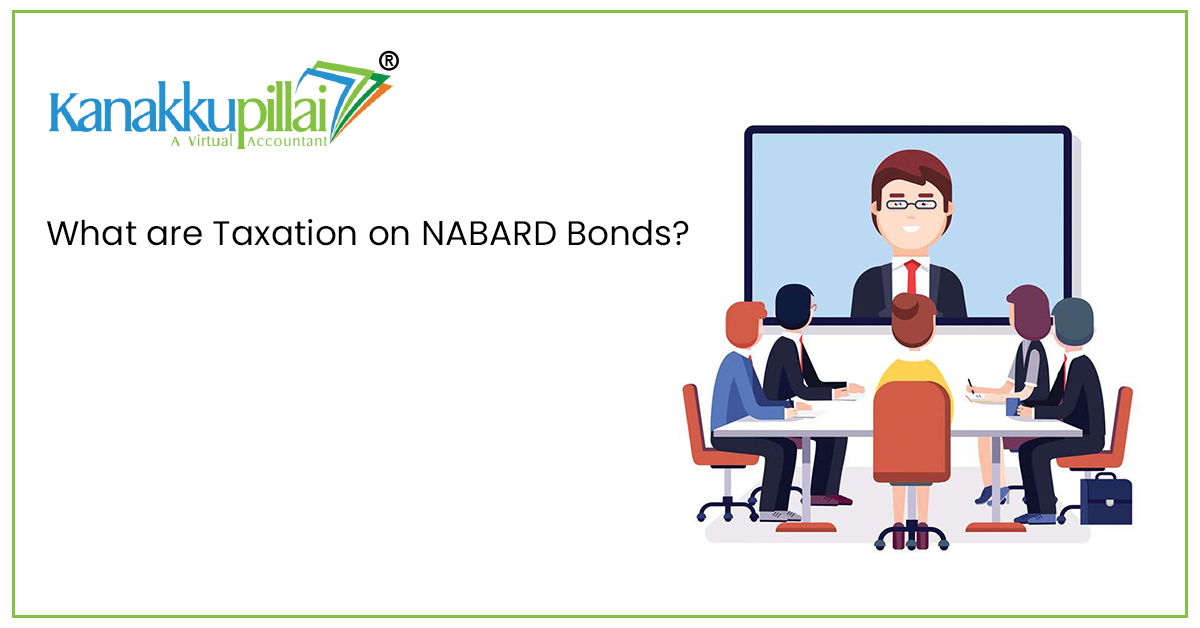NABARD is an acronym for National Bank for Agriculture and Rural Development (NABARD). NABARD issued their tax-free bonds for INR 5,000 crore. These bonds have tenures of 10,15 and 20 years, during March 2016. The bonds have a rating of CRISIL AAA or Stable, which is given by Credit Rating Information Services of India Limited (CRISIL), and also the grade of IND AAA/Stable by India Ratings.
NABARD
NABARD, the bank, was established in 1982 by a Special Act of Parliament. It is a prime development institution in India. It was set up with the major and foremost mission of uplifting the rural sectors of India through the improvement of agricultural and non-farming sectors through an increased credit flow in these areas.
The bank is mandated to aid the flow of credit or funds for not just the development but also promotion of agriculture, small-scale industries, handcrafts industry, and such other small entities along with the ensuring of other related economic activities in rural regions by NABARD Act.
Tax-Free Bonds issued by NABARD
Coupon Rates
The coupon rates which are provided by NABARD on the investments are as follows:
An investment of less than INR 10 Lakhs investment would be 7.64% for bonds with a duration of 15 years, while it would be 7.29% for bonds with a duration of 10 years.
And in the case of investors with investments above INR 10 Lakhs, the coupon rate shall be 7.04% in the case of bonds with a duration of 10 years, while it will be 7.35% in the case of bonds with a 15-year duration.
Face Value and Minimum Investment
The face value of the bond will be INR 1,000 along with the minimum interest requirement of five bonds that is INR 5,000 which shall be applied individually or collectively across all series of Bonds. Thereafter, the multiples of one bond i.e., INR 1,000 shall be applicable.
The interest shall be paid on an annual basis, and there shall not be any TDS deducted on the same.
Maturity or Redemption Date
the maturity or redemption date in case of bonds with a duration of 10 years shall be 10 years from the deemed date of allotment. The same is true in the case of 15-year duration bonds, which shall be 15 years from the date of allotment or the deemed date of allotment.
Why Invest in these Tax-Free Bonds?
Some of the major reasons why you should invest in tax-free bonds would include:
– These bonds are mostly AAA/AA rated, which means they can be claimed or assumed to be highly secure.
– As the name indicates, they are tax-free or exempt from tax as per the provisions of the Income Tax Act.
– The scope for capital appreciation is high here, and the interest rates are going down.
– These bonds can also be sold in the secondary market by an investor who would like to exit as these bonds are listed on both NSE (National Stock Exchange) and BSE (Bombay Stock Exchange).
What are the possible advantages of investing in NABARD Tax-Free Bonds?
Following are the advantages or benefits which will be enjoyed by the investor who is investing in NABARD-issued tax-free bonds:
- Tax-free income is possible as the interest paid or earned from these bonds is exempt from tax and would be paid on an annual basis.
- There is investment safety assurance as the bonds are AAA-rated, which denotes the highest degree of safety regarding the timely serving of all the financial obligations associated with them.
- The liquidity is high as they are listed on BSE and shall be sold anytime the investors would want to exit.
- The bonds can be held both in DEMAT Account or dematerialized form or physical form which enables the consumers without DEMAT Account also apply for the same.
Taxability of NABARD Bonds
– The interest income earned from these bonds shall be exempted from liability of Income Tax as per section 10(15)(iv)(h) of the Income Tax Act, 1961.
– The LTCG (Long Term Capital Gains) earned from the tax-free bonds from NABARD shall be taxable at 20.8% with indexation, while the same shall be taxable at the rate of 10.4% without indexation.
Say, Mrs. Shwetha, who is 65 years old, has an LTCG of INR 6,50,000 after indexation from NABARD Bonds. The taxable amount shall be INR 3,50,000, which is computed by deducting the basic exemption limit allowed to Mrs Shwetha as she is above 60 years old, and her exemption limit is INR 3 Lakhs. Hence, the tax liability shall be INR 72,800.
Hence, we can now conclude that the NABARD tax-free bonds are one safe investment option for investors belonging to the higher tax brackets, as they can earn yearly interest income which is tax-free. They can also liquidate the same by selling them off in the secondary market as these are listed on the BSE making the same a safe place to pool their money in.





